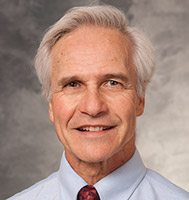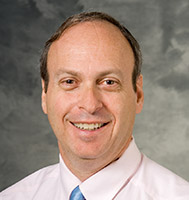
Adoptive transfer of haploidentical natural killer (NK) cells has shown promise as a treatment option to target and kill cancer cells in a less toxic way than conventional therapies. Now for the first time, scientists will combine NK cell therapy with an immunocytokine to target children with relapsed/refractory neuroblastoma, including those with bulky tumors.
A $136,000 grant from Solving Kids’ Cancer, The Catherine Elizabeth Blair Memorial Foundation, and Wade’s Army is supporting the novel, “first in human” immunotherapy, available only at American Family Children’s Hospital.
In the phase I clinical trial, researchers will use a humanized monoclonal antibody linked to IL2, known as hu14.18-IL2, which specifically targets neuroblastoma tumor cells and binds to them, while the IL2 activates NK cells. It is expected that the humanized monoclonal antibody may be more effective at activating the NK cells for killing the cancer cells. Using a novel technique, scientists will collect, expand, and infuse donor NK cells – originating from a parent – into children with neuroblastoma.

The trial, led by Kenneth DeSantes, MD (Professor [CHS] and Division Head, Division of Hematology, Oncology and Bone Marrow Transplant), and Paul Sondel, MD, PhD, is now open and currently recruiting at American Family Children’s Hospital.
“We believe this novel immunotherapy approach may potentially provide some benefit for children with relapsed or refractory neuroblastoma, whose prognosis has historically been extremely poor despite the use of aggressive chemotherapy regimens,” says Dr. DeSantes. “The NK cells utilized in this trial have an enhanced ability to kill tumor targets. We anticipate that the administration of these activated NK cells, given in combination with an immunocytokine that specifically recognizes neuroblastoma, will result in significant anti-cancer activity.”